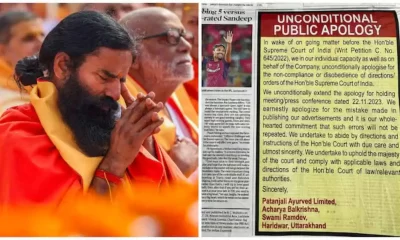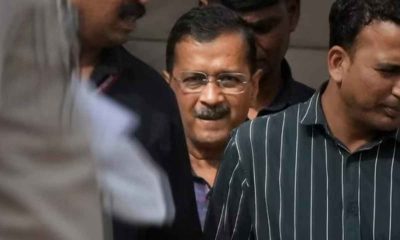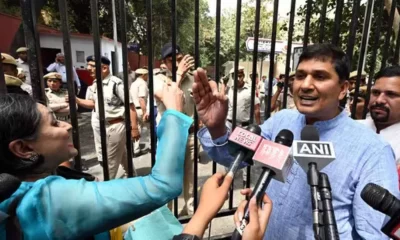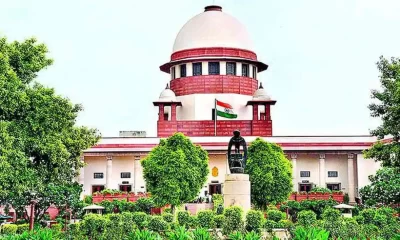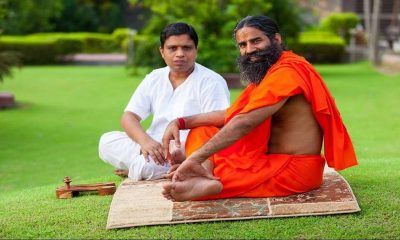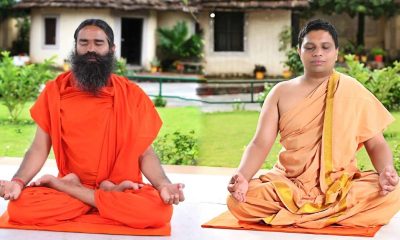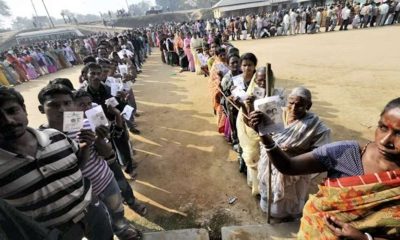India News
You don’t have to stand up at a cinema hall to prove patriotism, says Justice Chandrachud
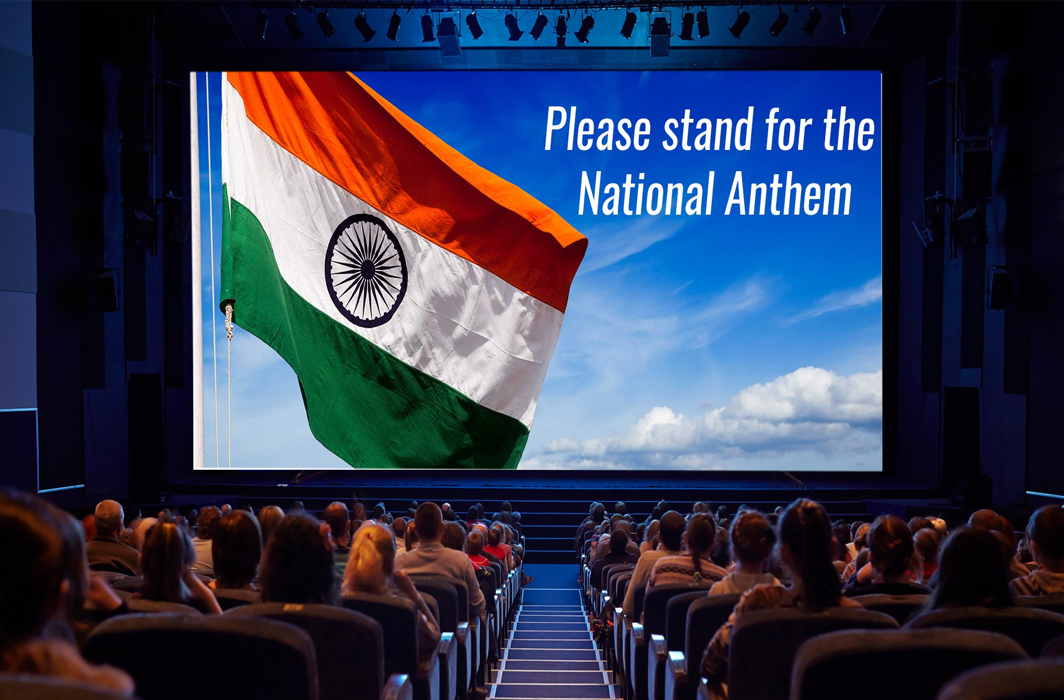
[vc_row][vc_column][vc_column_text]The Supreme Court on Monday agreed to consider a plea to modify its order that made the playing of the national anthem in cinema halls mandatory, even as the Centre opposed the move.
The apex court asked the Centre to take a call on the issue and consider amending the national flag code to regulate the matter, and frame rules by January 9.
The hearing of the case saw Justice Chandrachud making some interesting remarks on the issue after Attorney General for India KK Venugopal argued for playing of the National Anthem in cinema halls on the ground that it fosters national unity in a vast and diverse country like India, and is supported by Article 51A of the Constitution.
A Supreme Court Bench headed by Justice Dipak Misra, now the Chief Justice of India, had on November 30, 2016 passed an order making it mandatory to play the National Anthem before every show in cinema halls and for cinema-goers to stand up while it was played. Justice Misra had reasoned that the practice would “instil a feeling of committed patriotism and nationalism”. The Bench had described the playing of the anthem in cinema halls as an opportunity for the public to express their “love for the motherland”.
On Monday, Justice DY Chandrachud questioned the rationale, saying there is no need for an Indian to “wear his patriotism on his sleeve”. Justice Chandrachud was part of a three-judge Bench led by Chief Justice of India Dipak Misra hearing a petition filed by Kodungalloor Film Society in Kerala to recall the November order.
“Next thing will be that people should not wear T-shirts and shorts to movies because it will amount to disrespect to the National Anthem… where do we stop this moral policing?” Justice Chandrachud said.
Media reports said that Justice Chandrachud referred to the Flag Code to observe that “there is no mandate that people should stand up when the National Anthem is sung in a cinema hall. This is obviously because a cinema hall is a place for entertainment… People go to cinema halls for undiluted entertainment. Why should we make choices for them? Why should we assume that if someone doesn’t stand up for anthem in the cinema hall, he is not patriotic?”
“You don’t have to stand up at a cinema hall to be perceived as patriotic,” Justice Chandrachud said.
At one point, Justice AM Khanwilkar reacted to lawyers’ submissions that the National Anthem is played in cinema halls in States like Maharashtra and Chhattisgarh, saying if it is good for Maharashtra, it may be good for other States.
Justice Chandrachud, however, took a leaf from his childhood, remarking that he had witnessed people leaving the cinema hall when the Anthem is played after the show. “Maybe that was why it was stopped… because of the disrespect,” Justice Chandrachud said.
The judge was responding to submissions by Attorney General KK Venugopal, for the Centre, in support of the November 30, 2016 order. Venugopal submitted that playing the National Anthem in cinema halls and standing up as a mark of respect for it fosters a sense of unity in a country diverse in caste, religion and regions. The AG submitted that playing the Anthem would be a “unifying force” so that “when people come out of the theatre they will believe that we are all Indians”.
“Its purpose is the loyalty of the population, to neutralise divisiveness, foster unity in diversity. It is the duty of every citizen under Article 51-A (a) to abide by the Constitution, respect its ideals and institutions, the National Flag and the National Anthem,” Venugopal submitted.
Justice Chandrachud disagreed. He said Article 51A is very broad and also makes it the fundamental duty of citizens to “develop scientific temper, humanism, spirit of inquiry”, etc. “Are we [Supreme Court] supposed to enforce all this? As the government, you have the power. You take the call. Why should we take your burden?” said Justice Chandrachud.
“If the court is supposed to enforce respect for the National Anthem on citizens, it should also enforce the other fundamental duties in Article 51A? You know what is good for the goose is also good for the gander, right?” Justice Chandrachud asked Venugopal.
When one of the lawyers said some missionary schools refused to play the National Anthem, Justice Chandrachud, who authored the majority verdict declaring privacy as a fundamental right, retorted: “I studied in a missionary school. We sang both the National Anthem and ‘Our Father’. For us both were equally important.”
Justice Chandrachud said cultural and social values are imbibed from parents and teachers and not what courts enforce through its orders.
The judge indicated that it was for the government to take the call on whether it wants the Flag Code to be amended to make it mandatory for cinema halls to play the anthem.
Towards the end of the hour-long hearing, Chief Justice Misra suggested a change in the language of the November 2016 order, which had the effect of making the playing the anthem optional, The Hindu reported.
However, Venugopal said the government would take a call. Finally, the court left it to the discretion of the government to bring out any notification, if necessary, to take a call to make or not make the playing of the National Anthem mandatory in cinema halls, uninfluenced by the Court’s earlier order.
The case was posted for hearing on January 9, 2018.[/vc_column_text][/vc_column][/vc_row]
Education
Farmer’s son Nilkrishna Gajare Nirmalkumar from Maharashtra scores 100 NTA score in IIT-JEE Mains 2024
Nilkrishna Gajare’s father is a farmer and had to discontinue his own education after Class 12 as he faced financial difficulties. Gajare faced financial challenges growing up. However, his unwavering dedication and strategic approach to preparation set him apart from the crowd.
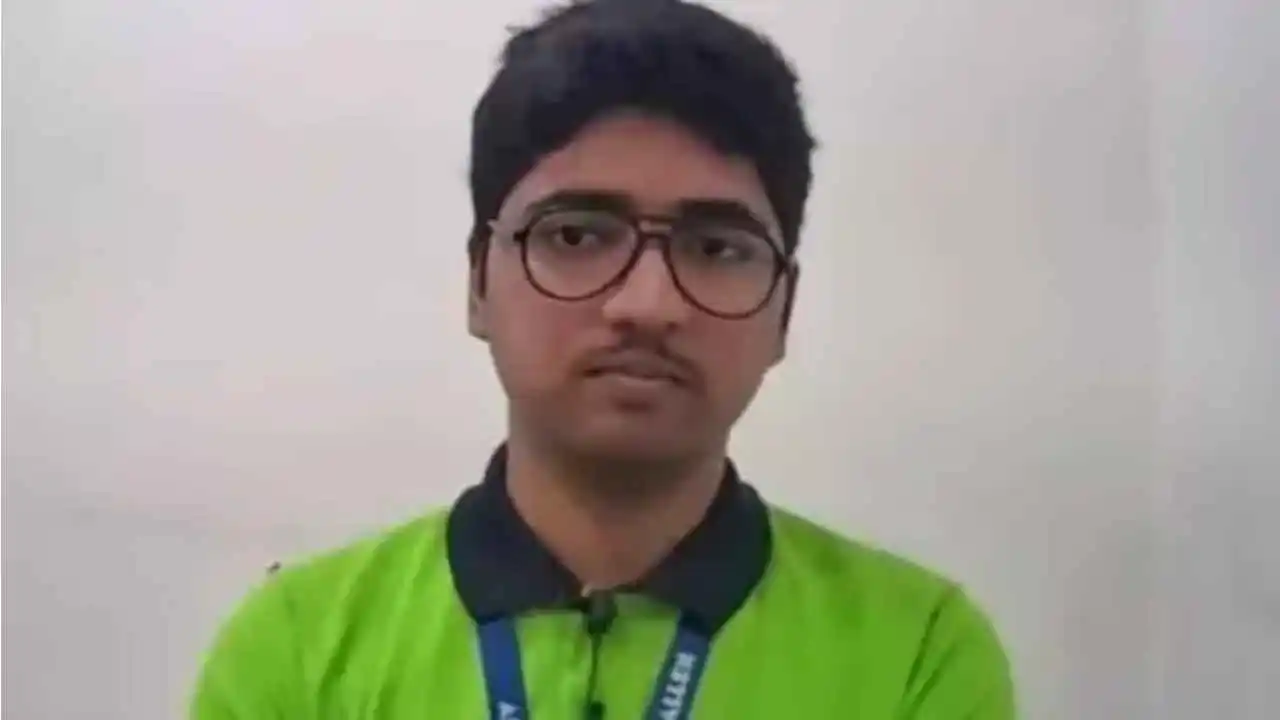
Nilkrishna Gajare, who hails from Maharashtra’s Washim, achieved an extraordinary feat by securing a perfect score of 100 in the JEE Main 2024 examination. His journey from humble beginnings to the pinnacle of success is a source of inspiration for many people.
Nilkrishna Gajare’s father is a farmer and had to discontinue his own education after Class 12 as he faced financial difficulties. Gajare faced financial challenges growing up. However, his unwavering dedication and strategic approach to preparation set him apart from the crowd, which resulted in his remarkable achievement of emerging as topper of one of India’s toughest Engineering entrance exams.
Nilkrishna Gajare had a strategic plan that helped him succeed in IIT-JEE 2024. According to Nilkrishna persistence is important and one should never stop trying until they understand a topic. He said being curious and asking questions are important traits of a good student. He said one should not be ashamed of asking questions.
Nilkrishna spent around 10-15 hours every day studying on his own for the JEE Main exam. He mentioned that he used his class notes for Physics and Physical Chemistry. For organic chemistry and inorganic chemistry, he relied on both notes and practice questions.
As for Mathematics, he believed that practicing regularly was the most important thing for him. Other interests of Nilkrishna include archery. He has participated at both state and national levels, and he finds joy in the sport. He said archery helps him understand the importance of focusing his attention on his goals. Nilkrishna likes watching movies and said they are a great source of enjoyment and relaxation.
He likes to watch a movie after exams and occasionally treats himself to one each week too. Gajare aims to keep up the pace for the JEE-Advanced exam and hopes to get into the IITs. He said he wants to secure admission in IIT-Bombay in the computer science branch.
2024 Lok Sabha Elections
Lok Sabha elections: Samajwadi Party chief Akhilesh Yadav files nomination from Kannauj
The Samajwadi Party has announced Akhilesh Yadav as its official candidate for the Kannauj Lok Sabha seat today
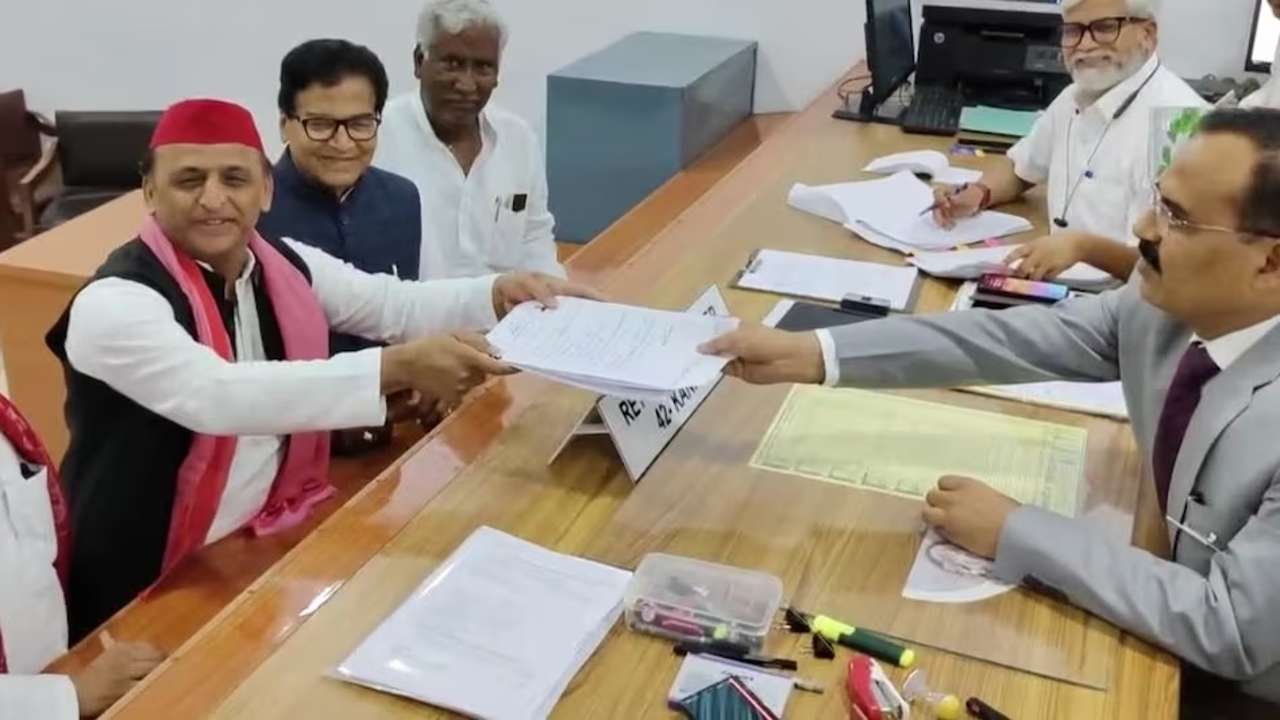
Samajwadi Party (SP) chief Akhilesh Yadav, submitted his nomination for the Kannauj Lok Sabha constituency ahead of tomorrow’s second round of voting. In front of Ram Gopal Yadav and other party leaders, the chief of the SP, who had previously contested the seat in 2000, 2004 and 2009, submitted the nomination.
Speaking with media, Ram Gopal Yadav said that SP would win the seat by a huge margin. The BJP candidate might lose his deposit in the seat, he said.
The Samajwadi Party has completely reversed its earlier plan to field former Mainpuri MP Tej Pratap Singh Yadav as their candidate, which is a significant political development.
Earlier, Akhilesh Yadav told reporters, people will find out when the nomination takes place, in reference to the speculations that he will contest for the seat. The historic victory of Kannauj is the subject of inquiry.
The former chief minister continued, the people have decided that the India bloc is coming as the future and the BJP will be history in this election.
Notably, elections for the Kannauj seat are scheduled for May 13, which would intensify the political drama that is now playing out in Uttar Pradesh. Previously regarded as the Samajwadi Party’s stronghold, the seat was lost by the party in the 2019 election when Subrat Pathak of the BJP won with a resounding victory.
The candidates competing for the following Uttar Pradesh seats will find out their destiny in the second round of voting, which is scheduled for tomorrow, Amroha, Meerut, Mathura, Baghpat, Aligarh, Ghaziabad, Gautam Buddh Nagar, and Bulandshahar.
Notably, two Bollywood celebrities running as BJP candidates in the second round are Hema Malini from Mathura and Arun Govil from Meerut. There are 91 contestants from UP competing in the second phase.
The seats in Gautam Buddha Nagar and Mathura are up for grabs, with a maximum of 15 applicants per seat. In Bulandshahr, six candidates are vying for the presidency. There are twelve contenders running in Amroha, eight in Meerut, seven in Baghpat, and fourteen in Ghaziabad and Aligarh.
1,67,77,198 votes will decide these candidates’ fates.
2024 Lok Sabha Elections
Bihar: Election Commission extends voting timings for 4 Lok Sabha seats due to heatwave
The voting period has been extended by two hours for a total of 299 polling stations
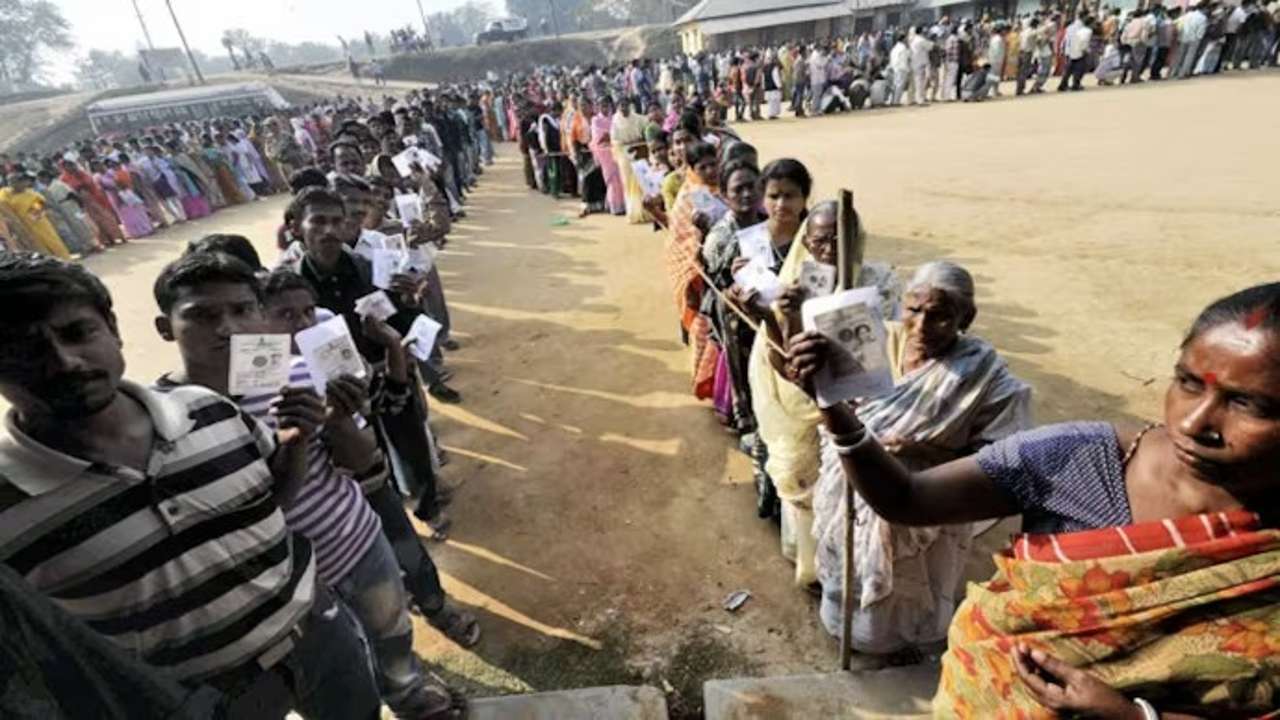
In accordance to the rising temperatures in Bihar, the Election Commission of India (ECI) has extended the voting hours for the upcoming three phases of the parliamentary polls at 1,700 polling places spread across four parliamentary seats, Banka, Madhepura, Khagaria, and Munger. The extension of the voting hours was announced by poll officials on Wednesday.
Polling generally takes place from 7 a.m. to 6 p.m. in most parts of the country, however, in certain isolated locations and in constituencies impacted by left-wing extremism, polls close two hours early to allow polling parties to move around easily.
The ECI gazette notification said the dates for the parliamentary constituencies of Banka (Katoria and Belhar assembly segments), which will hold elections on April 26, Madhepura (Mahishi assembly segment), Khagaria (Simri Bakhtiyarpur, Alauli, and Beldaur assembly segments), where voting will take place on May 7, and Munger (Suryagarha assembly segment), which will hold final phase elections on May 13, have been extended.
The voting period has been extended by two hours for a total of 299 polling stations in Simri Bakhtiarpur, 191 polling stations in Belhar AC of Banka, 172 polling stations in Katoria Assembly Constituency (AC) and 191 polling stations in Belhar AC of Banka, 207 booths in Mahishi AC of Madhepura seat, and 230 polling stations in Suryagarha AC of Munger.
In an effort to boost voter turnout, which fell to 49.26% in the first phase of polling on April 19 in Aurangabad, Gaya, Nawada, and Jamui from 53.47% in 2019 by 4.21%, the timing has also been extended.
Meanwhile, during the course of the next several days, temperatures in the southern states, namely Kerala and Karnataka, are predicted to rise by 2-3°C. In Southern Karnataka, where up to 14 constituencies are scheduled to vote in Phase 2, a heatwave warning has been issued. It is predicted to affect the districts of Tumkur, Davangere, Vijayapura, Yadgir, Koppal, Bagalkote, Kalaburgi, Raichur, Ballari, Chitradurga, Kolar, Chikkaballapura, Gadag, and Davangere.
The EC stated that a likely factor influencing voter turnout is the increase in temperature.
-

 India News4 hours ago
India News4 hours agoLandslide hits Arunachal Pradesh, highway linking Indo-China border affected
-
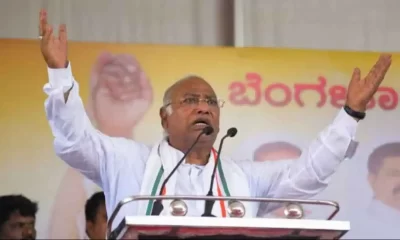
 2024 Lok Sabha Elections20 hours ago
2024 Lok Sabha Elections20 hours agoMallikarjun Kharge vows to continue politics till his last breath to defeat BJP
-
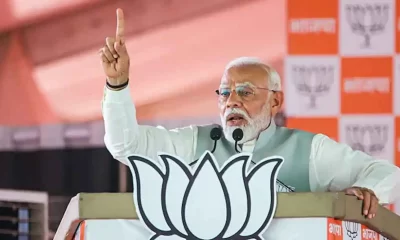
 2024 Lok Sabha Elections23 hours ago
2024 Lok Sabha Elections23 hours agoPM Narendra Modi slams Congress over Sam Pitroda’s inheritance tax remarks, accuses Congress of intending to impose higher taxes
-
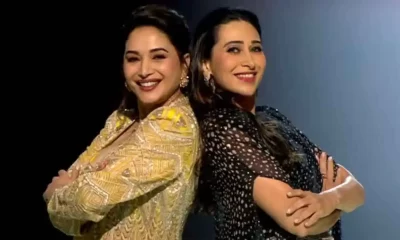
 Entertainment22 hours ago
Entertainment22 hours agoMadhuri Dixit, Karisma Kapoor recreate Dil To Pagal Hai dance battle on Dance Deewane
-
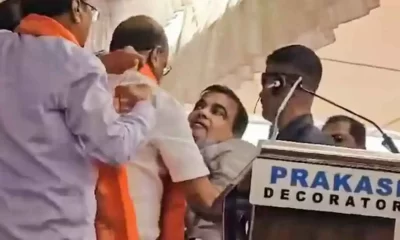
 2024 Lok Sabha Elections21 hours ago
2024 Lok Sabha Elections21 hours agoNitin Gadkari says he’s better now after collapsing at election rally in Maharashtra’s Yavatmal
-
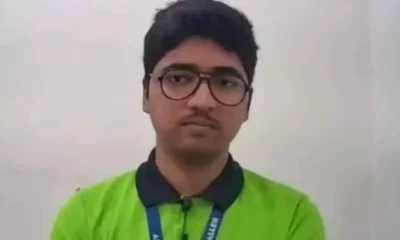
 Education2 hours ago
Education2 hours agoFarmer’s son Nilkrishna Gajare Nirmalkumar from Maharashtra scores 100 NTA score in IIT-JEE Mains 2024
-
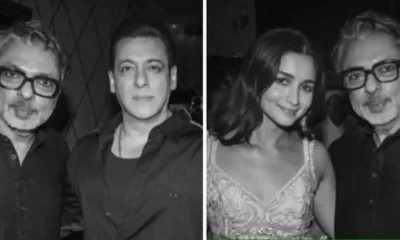
 Entertainment3 hours ago
Entertainment3 hours agoBollywood stars Salman Khan, Alia Bhatt, Rekha, Sonakshi Sinha, Aditi Rao Hydari attend Sanjay Leela Bhansali’s Heeramandi premiere
-

 India News4 hours ago
India News4 hours agoTamannaah Bhatia summoned in illegal IPL streaming app case, to appear before cyber cell on April 29

